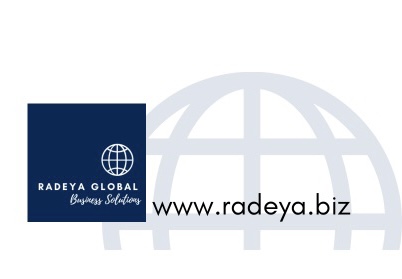We asked Chat GPT how artificial intelligence might affect employment. Here is what it said:
Artificial intelligence has the potential to automate many tasks currently performed by humans, including those in minimum wage work sectors like retail, food service, and customer service. While this could lead to job displacement in the short term, it may also create new opportunities and jobs in AI development, maintenance, and supervision. However, there’s a need for policies and initiatives to ensure a smooth transition for affected workers, such as reskilling programs and social safety nets.
Additionally, AI could enhance productivity and efficiency in various industries, potentially leading to economic growth and the creation of new types of jobs that we may not even anticipate yet. It could also improve the quality of jobs by automating repetitive tasks, allowing workers to focus on more creative and fulfilling aspects of their roles. However, there are concerns about AI exacerbating income inequality if the benefits are not distributed equitably, which underscores the importance of proactive policy measures to address these challenges.
Furthermore, the widespread adoption of AI could reshape the nature of work itself, requiring workers to adapt and acquire new skills to remain competitive in the job market. This shift may necessitate changes in education and training systems to ensure that individuals are equipped with the skills needed for the jobs of the future. Additionally, there could be ethical considerations regarding the use of AI in employment, such as biases in algorithms or concerns about privacy and surveillance in AI-driven workplace monitoring systems.
Another aspect to consider is the potential for AI to complement human workers rather than replace them entirely. Collaborative AI systems, where machines work alongside humans, can amplify human capabilities, leading to greater productivity and innovation. This approach could lead to more fulfilling and meaningful work experiences, as humans and AI collaborate to solve complex problems and achieve shared goals. Additionally, as AI technologies continue to evolve, there may be opportunities for individuals to pursue careers in AI ethics, policy-making, and regulation, ensuring that AI is deployed responsibly and ethically in the workforce.
To leverage AI effectively, people can:
1. Identify areas where AI can add value: Assess processes and tasks within your organization that could benefit from automation, optimization, or predictive analytics.
2. Invest in quality data: Ensure access to high-quality, relevant data to train AI models effectively. Data cleanliness and diversity are crucial for accurate predictions and insights.
3. Choose the right AI tools and technologies: Select AI solutions that align with your business goals and technical requirements. This may involve building in-house capabilities or partnering with external vendors.
4. Foster a culture of experimentation and learning: Encourage employees to explore AI technologies and experiment with different use cases. Provide training and resources to help them develop AI skills and knowledge.
5. Prioritize transparency and ethical considerations: Be transparent about how AI is used within your organization and prioritize ethical considerations, such as fairness, accountability, and privacy, throughout the AI lifecycle.
6. Measure and evaluate outcomes: Continuously monitor the performance and impact of AI solutions to ensure they are delivering the desired results. Use metrics and key performance indicators to track progress and identify areas for improvement.
By following these guidelines, individuals and organizations can harness the power of AI to achieve their objectives and drive innovation and growth.
Individuals can make the most of AI by:
1. **Personalized productivity tools**: Utilize AI-powered tools for time management, task prioritization, and personal organization to boost efficiency and effectiveness in daily tasks.
2. **Learning and skill development**: Take advantage of AI-based online learning platforms and educational apps to acquire new skills, enhance knowledge, and stay competitive in the job market.
3. **Health and wellness tracking**: Use AI-powered health and fitness apps to monitor physical activity, nutrition, sleep patterns, and overall well-being, allowing for personalized recommendations and insights.
4. **Smart home devices**: Incorporate AI-driven smart home devices for convenience and efficiency, such as smart thermostats, lighting systems, security cameras, and virtual assistants, which can automate routine tasks and provide valuable assistance.
5. **Personal finance management**: Leverage AI-powered financial apps and services for budgeting, expense tracking, investment analysis, and financial planning to make informed decisions and achieve financial goals.
6. **Content recommendation systems**: Explore AI-driven content recommendation systems on streaming platforms, news websites, and social media to discover personalized content tailored to individual preferences and interests.
7. **Language translation and interpretation**: Utilize AI-based language translation tools and apps for seamless communication across different languages and cultures, both in written and spoken formats.
By incorporating these AI-powered tools and services into their daily lives, individuals can enhance productivity, well-being, learning, and overall quality of life.
Editor’s note: To summarize, artificial intelligence can have both a positive and negative effect on employment and human life. It is up to people to ensure that AI is used for best results.
Need help with job search, career development, career planning, resume optimization or interview skills? Radeya Global can help. Our services have helped clients get jobs at top organizations like EY, JP Morgan, Marriott, NHS, Crowe Mak, Saudi Re, IPCO Germany GmbH, NHS and DMCC. We can help you too. Fill out our Client Assessment Form to get started. https://forms.gle/mU2wEmiwz2JuQEBA6
#radeyaglobalblog
